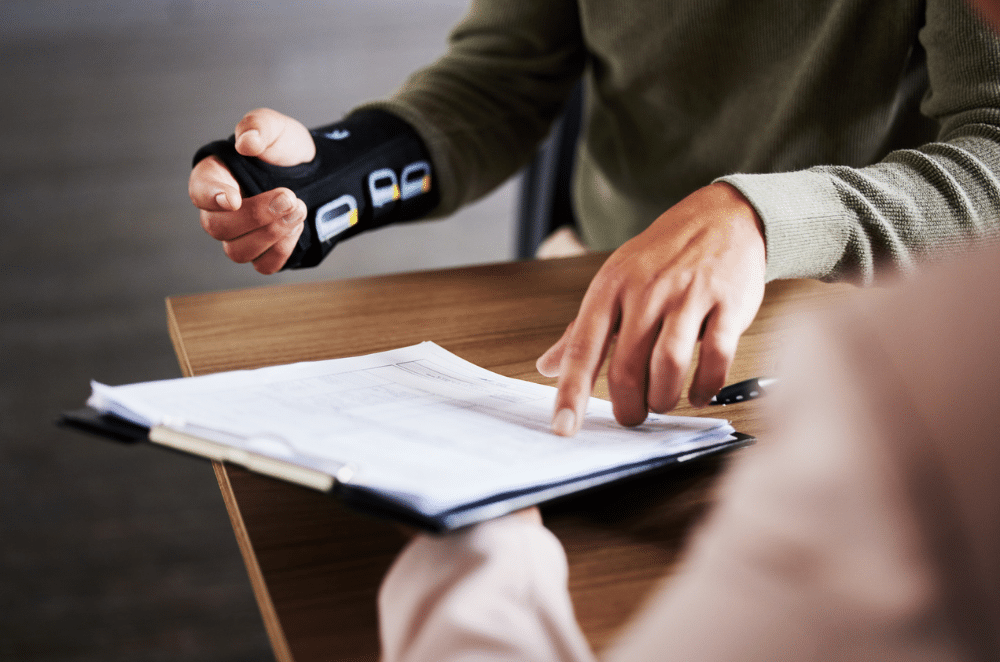
When faced with an injury due to another’s negligence, you may seek the advice of a personal injury attorney for your case. These legal professionals offer specialized representation, helping you understand your rights, file compensation claims, and negotiate with the responsible party for fair compensation.
But what does a South Carolina personal injury lawyer actually do? Learn the responsibilities of a personal injury attorney from Joye Law Firm and what actions you can take to support them as they handle your accident case.
What is a Personal Injury Lawyer?
A personal injury lawyer represents individuals injured in accidents due to negligence or intentional actions by others. This includes helping the victim receive compensation for medical costs, lost earnings, and emotional distress.
Personal injury lawyers handle a wide range of cases, including:
- Car accidents: Assist clients injured in car accidents caused by negligent drivers, defective vehicle parts, or hazardous road conditions.
- Medical malpractice or nursing home neglect: Help patients who have suffered harm due to medical errors, misdiagnoses, surgical mistakes, abuse, or other negligence in a healthcare or nursing home setting.
- Workplace injuries: Advocate for employees to receive workers’ compensation benefits or pursue legal action against third parties responsible for their damages.
- Product liability: Take on cases involving defective products that have caused harm to consumers by pursuing compensation from manufacturers or distributors.
- Premises liability: Represent individuals who have been injured on someone else’s property (including commercial properties) in incidents such as dog bites, swimming pool accidents, slipping and falling, or inadequate security leading to assaults.
- Wrongful death: Assist surviving family members in pursuing compensation when a loved one’s death results from someone else’s negligence or intentional wrongdoing.
Responsibilities of a Personal Injury Attorney During Your Case
Engaging a personal injury lawyer means they will undertake key responsibilities to secure a positive result in your case, such as:
- File your claim: Initiate the legal process by officially filing your claim. This step involves preparing and submitting the necessary legal documents to start your case and ensuring all procedural requirements are met.
- Handle communication with the other party: Manage all interactions and correspondence with the opposing party or their representatives. This includes responding to inquiries and requests for information.
- Investigation: Conduct thorough investigations to gather evidence supporting your claim. This may involve collecting medical records, accident reports, witness statements, and other relevant documentation.
- Consulting experts: Consult with medical experts, accident reconstruction specialists, or other professionals to strengthen your case by providing expert testimony.
- Negotiation: Negotiate with insurance companies and opposing parties to reach a fair settlement on your behalf. They use their legal experience to maximize compensation for your injuries and losses.
- Litigation: If negotiations fail, represent your interests during trial proceedings. This includes preparing you for trial, conducting depositions, and presenting your evidence to a judge or jury.
- Clear communication: Keep you informed and maintain clear communication during the legal process, offering updates on your case’s progress and answering questions you might have.
- Advising without dictating: Offer guidance and legal advice while respecting your autonomy and making recommendations without dictating decisions. The final choice to accept or reject settlement offers or proceed with litigation always rests with you.
How You Contribute to a Successful Case Resolution
Your personal injury attorney and their legal team drive your case forward after an accident, but your actions as a client can also contribute to a successful outcome. When working with a personal injury lawyer, take the following steps for a smooth case resolution:
- Promptly report the incident. Report the incident that caused your injury to the appropriate authorities immediately. For instance, in South Carolina, you must report a car accident that involves an injury, death, or property damage over $1,000 within 15 days. Similarly, injuries on the job must be reported to your employer within 90 days of an incident in order to file a workers’ comp claim. Delayed reporting can weaken your case, making it more difficult for your attorney to represent you effectively.
- Seek medical attention. Obtain medical treatment for your injuries promptly and follow your healthcare provider’s recommendations. This ensures your well-being and creates a record of your injuries for your attorney to review and use to support your claim.
- Document evidence. Gather evidence at the accident scene, such as photographs, witness contact information, and any relevant details. Your attorney can use these to investigate the accident and consult experts for insights on liability and damages incurred.
- Keep records. Maintain records of all medical expenses, property damage, and other losses related to your injury. This documentation will help your attorney assess the value of your claim.
- Stay in contact. Maintain open communication with your personal injury lawyer. Inform them of any new developments or changes in your condition.
- Follow legal advice. Listen to and consider the legal advice provided by your attorney. While the final decisions are yours, their guidance is based on their legal knowledge and experience.
Contact Joye Law Firm for Experienced Legal Representation
If you were hurt in a personal injury accident, such as a car crash or slip and fall, hiring a personal injury attorney can help you get compensation for your losses. Our attorneys have over 250 years of combined legal experience working in personal injury law in South Carolina.
We can use our knowledge and legal training to help you get a fair settlement from the party responsible for your injuries. Connect with us today to schedule a no-obligation consultation to discuss your case and next steps.







































